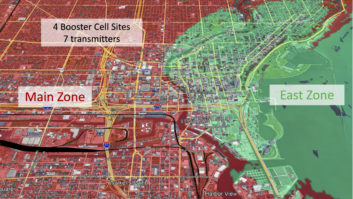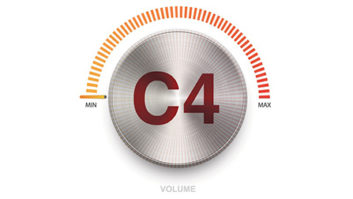Kudos for the story of pre-vacuum tube transmitters [“When Brute Force Transmitters Ruled the Air,” RWEE, April 22]. In reading this item, there was one statement that has been bugging me: “True to Ohm’s law, when the voltage flowing through an ordinary resistor increases …”
 What?
What?
Later in the same paragraph: “increasing voltage results in lowered current flow …” Huh?
I’ll admit that I’ve been out of school for many years; however, I don’t believe the behavior of the elements of Ohm’s Law have changed very much.
Voltage does not “flow,” current does.
Voltage is a difference of potential that causes current to flow.
Did I miss something here?
Author James O’Neal replies to the above letter:
Thanks Clay for catching the slip-up. Apparently, my fingers weren’t fully engaged with my brain when I typed that.
I should have written: “True to Ohm’s law, when the voltage across an ordinary resistor increases, the current flowing through it increases proportionally (I=E/R).”
Please forgive this transgression. I sentence myself accordingly to 60 seconds of being in close proximity to the stench that results from attempting to pass an excessive amount of current through a carbon resistor!
I do defend my statement in the next sentence that in the case of a negative resistance, an increase in voltage results in a reduction in current flow. As I tried to make clear in the article, this (negative resistance) is a special case and does not apply to ordinary resistive circuit elements.









